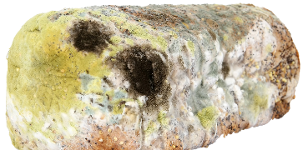Companies
Nigerian Entrepreneur Recycles Egg Shells Into Gold
 A Nigerian expert in agricultural waste recycling has developed a “gold mine” of a process for recycling egg shells – donated by bakeries, hatcheries, confectionaries, etc. – for use by a variety of industries. The cosmetics industry, for example, uses egg shells to make body care products. Other examples listed by Ogochukwu Maduako include the pharmaceutical industry (medicine production), the paint industry (as a pigment), and the agricultural sector (for calcium supplementation). Egg shells can also be turned into an effective scouring powder in the home for washing pots and pans, sinks, and bathtubs. Maduako’s mission? “To change the narratives of agricultural waste through eggshells. I want agricultural waste to be seen differently – more like the gold that it is.”[Image Credit: © Corophoto from Pixabay]
A Nigerian expert in agricultural waste recycling has developed a “gold mine” of a process for recycling egg shells – donated by bakeries, hatcheries, confectionaries, etc. – for use by a variety of industries. The cosmetics industry, for example, uses egg shells to make body care products. Other examples listed by Ogochukwu Maduako include the pharmaceutical industry (medicine production), the paint industry (as a pigment), and the agricultural sector (for calcium supplementation). Egg shells can also be turned into an effective scouring powder in the home for washing pots and pans, sinks, and bathtubs. Maduako’s mission? “To change the narratives of agricultural waste through eggshells. I want agricultural waste to be seen differently – more like the gold that it is.”[Image Credit: © Corophoto from Pixabay]
British Food Waste Recycler Tells Foodservice Industry How To Cut Waste
 ReFood, the U.K.’s leading food waste recycler, believes the country should be ranked higher than 24th in the world in reducing food waste. The British foodservice industry is producing a million tons of unnecessary food waste annually at a cost of $3.2 billion a year. Research suggests 75 percent of this waste is completely avoidable. The country’s pubs, restaurants and food outlets can implement several ReFood strategies to reduce waste: be sensible with stock, storage and stock rotation; use accurate temperature control to prevent growth of harmful pathogenic bacteria and minimize spoilage; label all stored food clearly; review portion sizes to prevent uneaten food from being wasted; link up with a local charity and donate leftovers; mix up the menu to give customers more choice about what’s on their plate; and expand food safety training to include food waste training.[Image Credit: © Free-Photos from Pixabay]
ReFood, the U.K.’s leading food waste recycler, believes the country should be ranked higher than 24th in the world in reducing food waste. The British foodservice industry is producing a million tons of unnecessary food waste annually at a cost of $3.2 billion a year. Research suggests 75 percent of this waste is completely avoidable. The country’s pubs, restaurants and food outlets can implement several ReFood strategies to reduce waste: be sensible with stock, storage and stock rotation; use accurate temperature control to prevent growth of harmful pathogenic bacteria and minimize spoilage; label all stored food clearly; review portion sizes to prevent uneaten food from being wasted; link up with a local charity and donate leftovers; mix up the menu to give customers more choice about what’s on their plate; and expand food safety training to include food waste training.[Image Credit: © Free-Photos from Pixabay]
At Google’s Cafés, Chefs Pay Close Attention To Food Waste
 At its headquarters in Mountain View, California, Google operates several cafés that serve 200,000 free meals a day. In 2014, Google started working with Leanpath, a company that provides equipment to measure and track food waste, and it coaches chefs on how to use that data. Google’s chefs carefully weigh ingredients that can’t be used to determine exactly how much food is wasted. They cook in batches to avoid preparing too much food, and adjust through the meal. By using these methods, Google says, it has kept more than six million pounds of food from going to landfills or compost. “The reality is that the act of measurement is, in and of itself, a very profound intervention,” says Andrew Shakman, CEO of Leanpath. [Image Credit: © Free-Photos from Pixabay]
At its headquarters in Mountain View, California, Google operates several cafés that serve 200,000 free meals a day. In 2014, Google started working with Leanpath, a company that provides equipment to measure and track food waste, and it coaches chefs on how to use that data. Google’s chefs carefully weigh ingredients that can’t be used to determine exactly how much food is wasted. They cook in batches to avoid preparing too much food, and adjust through the meal. By using these methods, Google says, it has kept more than six million pounds of food from going to landfills or compost. “The reality is that the act of measurement is, in and of itself, a very profound intervention,” says Andrew Shakman, CEO of Leanpath. [Image Credit: © Free-Photos from Pixabay]
Consumers
Rhode Island City Expands Leftover Food “Sharing Tables” To All Schools
 Pawtucket, R.I., has begun implementing a plan to cut down on food waste and make sure hungry children are properly fed. The plan is based on the concept of “sharing tables,” once an informal way for students to take food discarded by classmates. The method is being expanded to more schools this year. Beginning in April, foodservice provider Aramark will add ice packs and soft-shell coolers, allowing more items to be saved and given to students who need or want them. Company representatives will also be able to track exactly how much waste is being reduced by weighing poundage thrown away. Incorporating coolers, ice packs, signage, and training of staff will help make sharing tables a “routine staple of what we do.” An Aramark rep said.[Image Credit: © Mabel Amber from Pixabay]
Pawtucket, R.I., has begun implementing a plan to cut down on food waste and make sure hungry children are properly fed. The plan is based on the concept of “sharing tables,” once an informal way for students to take food discarded by classmates. The method is being expanded to more schools this year. Beginning in April, foodservice provider Aramark will add ice packs and soft-shell coolers, allowing more items to be saved and given to students who need or want them. Company representatives will also be able to track exactly how much waste is being reduced by weighing poundage thrown away. Incorporating coolers, ice packs, signage, and training of staff will help make sharing tables a “routine staple of what we do.” An Aramark rep said.[Image Credit: © Mabel Amber from Pixabay]
Innovations
Company Seeks Quick Commercialization Of Onsite Food Waste Processor
Regulation
Three Federal Agencies To Work Together To Reduce Nation’s Food Waste
 The U.S. Department of Agriculture (USDA), U.S. Environmental Protection Agency (EPA), and U.S. Food and Drug Administration (FDA) have joined forces to create an interagency strategy to address food waste. At an event held at EPA headquarters, state, local and community leaders and others shared ideas on how all levels of government can cooperate to reduce food waste. The “Winning on Reducing Food Waste Strategy” includes six priority areas the agencies will focus on over the next year: enhance interagency coordination; increase consumer education and outreach efforts; improve coordination and guidance on food loss and waste measurement; clarify and communicate information on food safety, food date labels, and food donations; collaborate with private industry to reduce food loss and waste across the supply chain; and encourage food waste reduction by federal agencies in their respective facilities. “Our nation’s agricultural abundance should be used to nourish those in need, not fill the trash,” said USDA Secretary Sonny Perdue. [Image Credit: © USDA]
The U.S. Department of Agriculture (USDA), U.S. Environmental Protection Agency (EPA), and U.S. Food and Drug Administration (FDA) have joined forces to create an interagency strategy to address food waste. At an event held at EPA headquarters, state, local and community leaders and others shared ideas on how all levels of government can cooperate to reduce food waste. The “Winning on Reducing Food Waste Strategy” includes six priority areas the agencies will focus on over the next year: enhance interagency coordination; increase consumer education and outreach efforts; improve coordination and guidance on food loss and waste measurement; clarify and communicate information on food safety, food date labels, and food donations; collaborate with private industry to reduce food loss and waste across the supply chain; and encourage food waste reduction by federal agencies in their respective facilities. “Our nation’s agricultural abundance should be used to nourish those in need, not fill the trash,” said USDA Secretary Sonny Perdue. [Image Credit: © USDA]
New York Enacts Law To Reduce Food Waste, Feed The Needy
 New York State has enacted first-of-its-kind food waste legislation designed to direct more healthy food to disadvantaged New Yorkers while reducing climate pollution around the state. The Food Donation and Food Scrap Recycling Act, effective in 2022, will require large food generators – including supermarkets, colleges, hotels, and sporting venues – to donate leftover edible food. Remaining scraps must be prepared as animal feed or compost if a recycling facility is within 25 miles. However, most food generators covered under the law are exempt from this provision because they're more than 25 miles from a recycler. Proponents of the food waste requirements expect that the language in the recently adopted state budget will encourage businesses to open organic recycling facilities in the next two and a half years.[Image Credit: © pasja1000 from Pixabay]
New York State has enacted first-of-its-kind food waste legislation designed to direct more healthy food to disadvantaged New Yorkers while reducing climate pollution around the state. The Food Donation and Food Scrap Recycling Act, effective in 2022, will require large food generators – including supermarkets, colleges, hotels, and sporting venues – to donate leftover edible food. Remaining scraps must be prepared as animal feed or compost if a recycling facility is within 25 miles. However, most food generators covered under the law are exempt from this provision because they're more than 25 miles from a recycler. Proponents of the food waste requirements expect that the language in the recently adopted state budget will encourage businesses to open organic recycling facilities in the next two and a half years.[Image Credit: © pasja1000 from Pixabay]
Copyright 2026 Business360, Inc.

